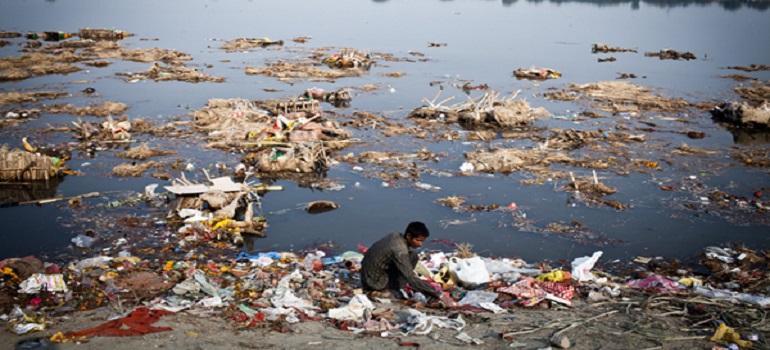 The Union Ministry of Earth Sciences will begin work on gauging marine litter and their sources along the country’s coastline, a senior ministry official said today.
The Union Ministry of Earth Sciences will begin work on gauging marine litter and their sources along the country’s coastline, a senior ministry official said today.
M Rajeevan, Secretary, Ministry of Earth Sciences said that the country had joined the United Nations’ “Clean Seas’ programme and the ministry’s Indian National Centre for Ocean Information Services and another Chennai-based institute would work on the field of marine litter.
“Recent talk is about marine litter. People talk about marine plastic, marine micro plastic. We have already joined the UNs Clean Seas programme and we will be starting a new activity on marine litter,” Rajeevan told reporters on the sidelines of the India-USA colloquium which began today at the National Institute of Oceanography, Goa.
“It is to gauge pollution in the coastal regions and to find out its sources. We will also work with state governments,” he said.
Calling marine pollution a serious national problem, Rajeevan said that his ministry was working with the USA to develop an emergency alert system to predict air pollution emergencies.
“Along the coast we have had a programme to measure sea water quality. We have been doing it for over 25 years at 25 places. It has shown good results and we now know where water quality is poor or good,” he informed.
Craig McLean, Acting Chief Scientist of the National Oceanic and Atmospheric Administration (NOAA), USA, said that plastic pollution is an important problem across the world.
“We have many countries, governments and the private sector offering commitments on how to protect the future of mankind and the oceans,” he said.
McLean said that the situation was changing with plastic manufacturers and consumers talking about using recyclable plastic.
“It gives a great deal of optimism with such kind of change. It is about how we can optimise and reuse plastic,” McLean said.
India and the US had signed a Memorandum of Understanding in 2008 to have scientific and technical cooperation in Earth observations and Earth sciences.
The current three-day colloquium will discuss the future of the understanding for the next ten years.
Source: PTI


